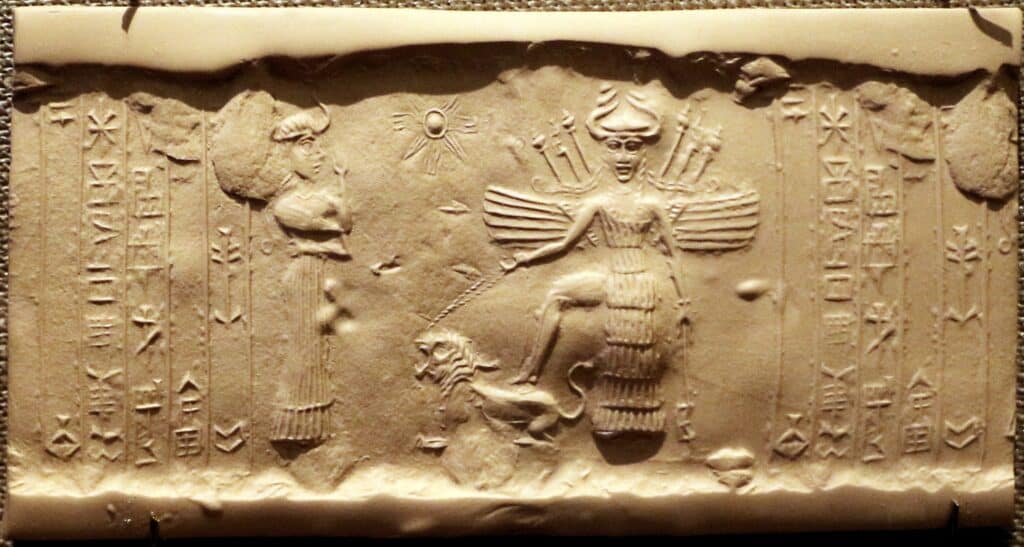The name “Athene” (or “Athena”) for the goddess of Athens has roots in ancient Greek language and mythology. The exact origin of the name is not definitively known, but there are a few theories:
- Pre-Greek Origin: Some scholars suggest that the name “Athena” might have pre-Greek origins, possibly from the Mycenaean civilization or another earlier culture. In the Linear B script used by the Mycenaeans, the goddess appears as “A-ta-na” or “A-ta-na-po-ti-ni-ja,” which means “Mistress Athena.” This suggests that the name may have been adopted by the Greeks from an earlier language.
- Derivation from the Greek Word for City: Another theory is that the name “Athena” could be derived from the Greek word “ἄστη” (ástē), meaning “city.” Since Athena was the patron goddess of the city of Athens, her name might be linked to her role as a protector of the city.
- Indo-European Roots: Some linguists have proposed that the name could have Indo-European roots, although this is more speculative. In this context, the name might be related to words meaning “sharp” or “pointed,” reflecting Athena’s attributes as a goddess of wisdom and war, known for her sharp intellect and strategic mind.
The information you provided supports the view that the goddess Athena likely derived her name from the city of Athens, rather than the other way around. The key points are as follows:
- City of Athens and the Name Athena: The ancient Greek name for Athens, “Ἀθῆναι” (Athȇnai), is a plural toponym. This suggests that the city was named in reference to a group or sisterhood associated with the goddess Athena, who was their patron deity. Scholars generally agree that the goddess was named after the city.
- -ene Suffix: The suffix “-ene” found in Athena’s name is more commonly associated with place names in ancient Greek rather than personal names, further supporting the idea that Athena’s name is derived from the city.
- Similar City Goddesses: Other cities in ancient Greece had analogous goddesses who were named after the cities where they were worshipped. Examples include Mykene in Mycenae and Thebe in Thebes. This pattern reinforces the idea that the names of these deities were likely derived from the names of their respective cities.
- Pre-Greek Origins: The name “Athenai” may have Pre-Greek origins, indicated by the presence of the morpheme *-ān-. This suggests that the name might have been influenced by the languages or cultures that existed in the region before the rise of classical Greek civilization.
In summary, Athena’s name is likely derived from the city of Athens, reflecting a broader pattern in ancient Greek religion where city goddesses were often named after the cities they protected and were worshipped in.

Athena originated as an Aegean goddess linked to the palace, overseeing household crafts and protecting the king. Her worship is evidenced in both Mycenaean and Minoan cultures, with inscriptions and frescoes highlighting her role.
One significant inscription, “a-ta-na po-ti-ni-ja,” found in Linear B tablets at Knossos, is often translated as “Mistress Athena,” though its connection to Athens remains unclear.
Some scholars propose that Athena evolved from earlier Minoan and Mycenaean deities, potentially associated with Zeus.
Initially, she might have been linked to birds or snakes, but over time, Athena shed these animalistic forms, retaining only symbolic representations like the owl.
